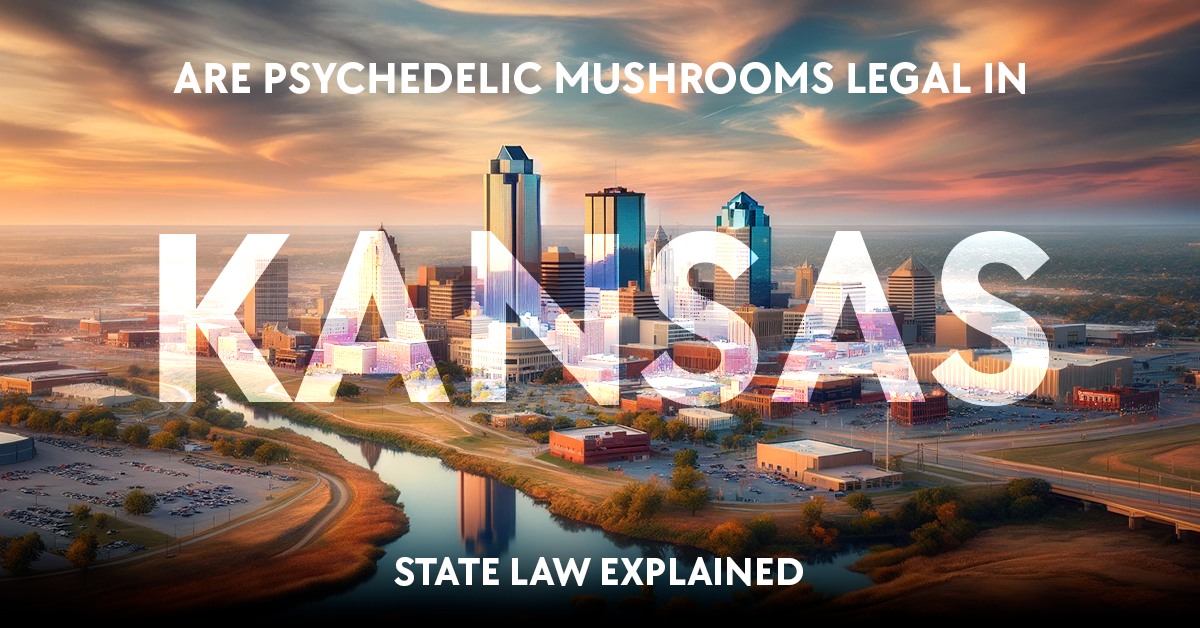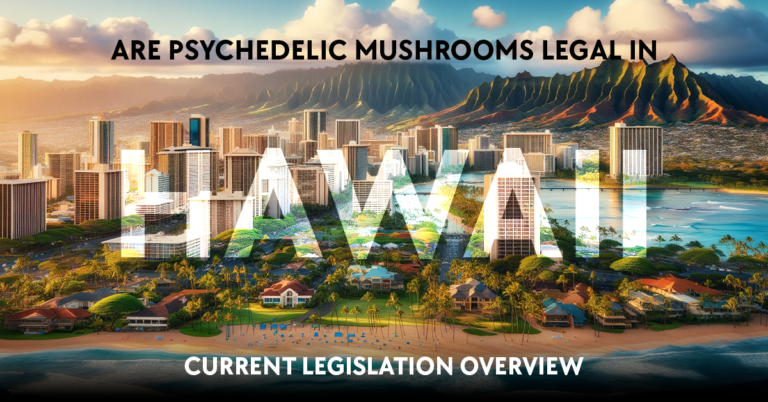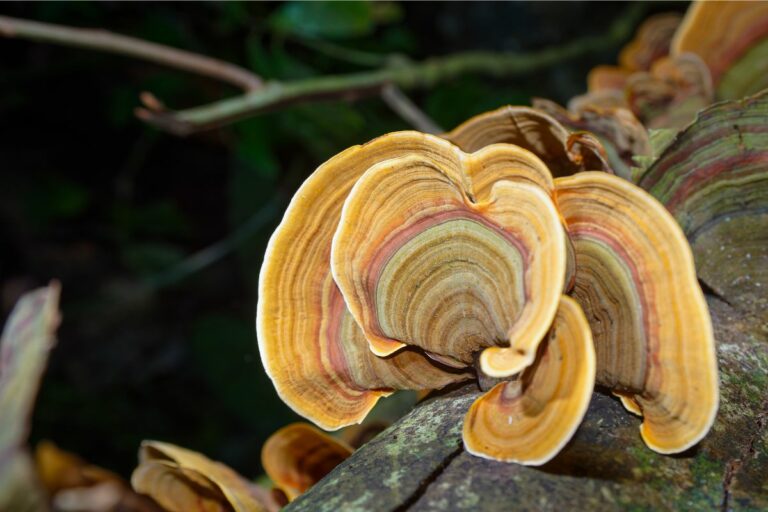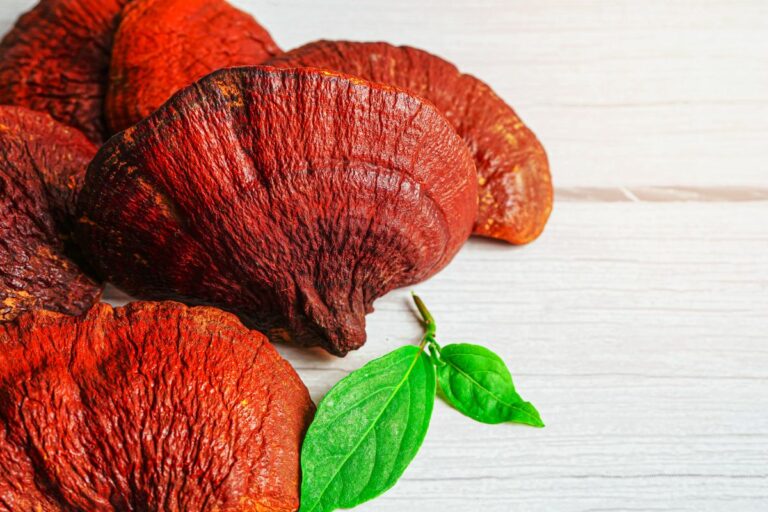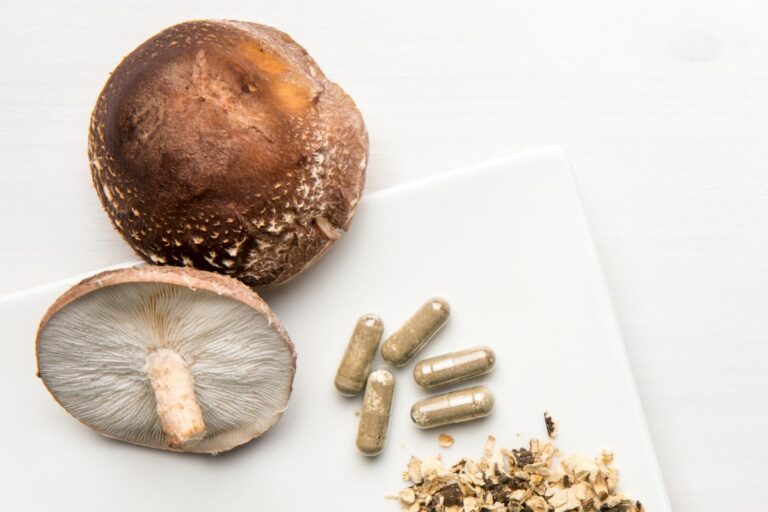Psychedelic mushrooms, also known as psilocybin mushrooms, are a topic of legal and social interest across the United States. In Kansas, like in many states, these substances have been traditionally classified as Schedule I controlled substances. This classification indicates that they are considered to have a high potential for abuse, no currently accepted medical use in treatment, and a lack of accepted safety for use under medical supervision. Therefore, the possession, sale, or cultivation of psychedelic mushrooms is illegal and can result in legal repercussions.
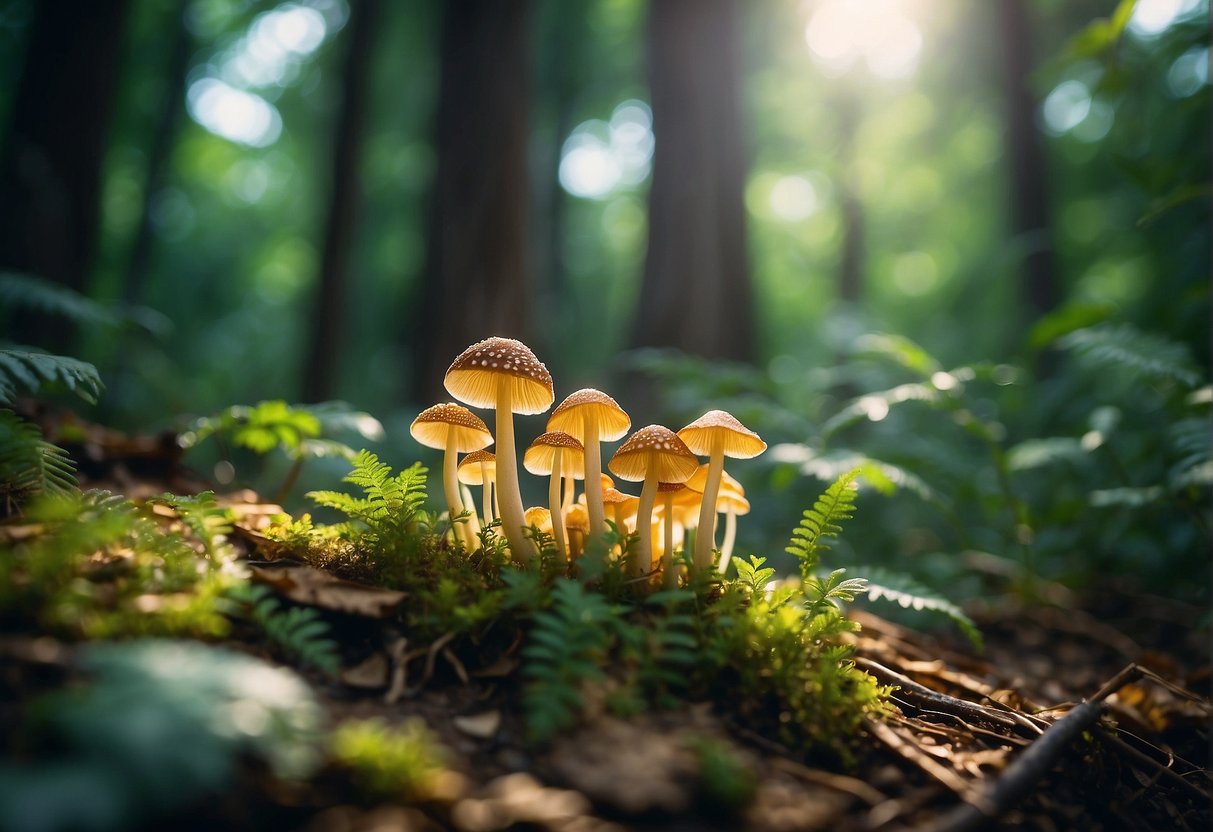
However, the legal landscape surrounding psychedelics is evolving, with some states considering reforms to ease restrictions on these substances. Research into the potential therapeutic benefits of psychedelic mushrooms is growing, prompting discussions on legislative reform. While certain locales are examining the decriminalization or legalization of psilocybin for medicinal or even recreational use, the current laws in Kansas have not adopted these reforms. If considering the use or advocacy for psilocybin mushrooms, it is crucial to stay informed on the most recent legislation, as the status of these substances can vary significantly by jurisdiction.
Legality of Psychedelic Mushrooms in Kansas
Table of Contents
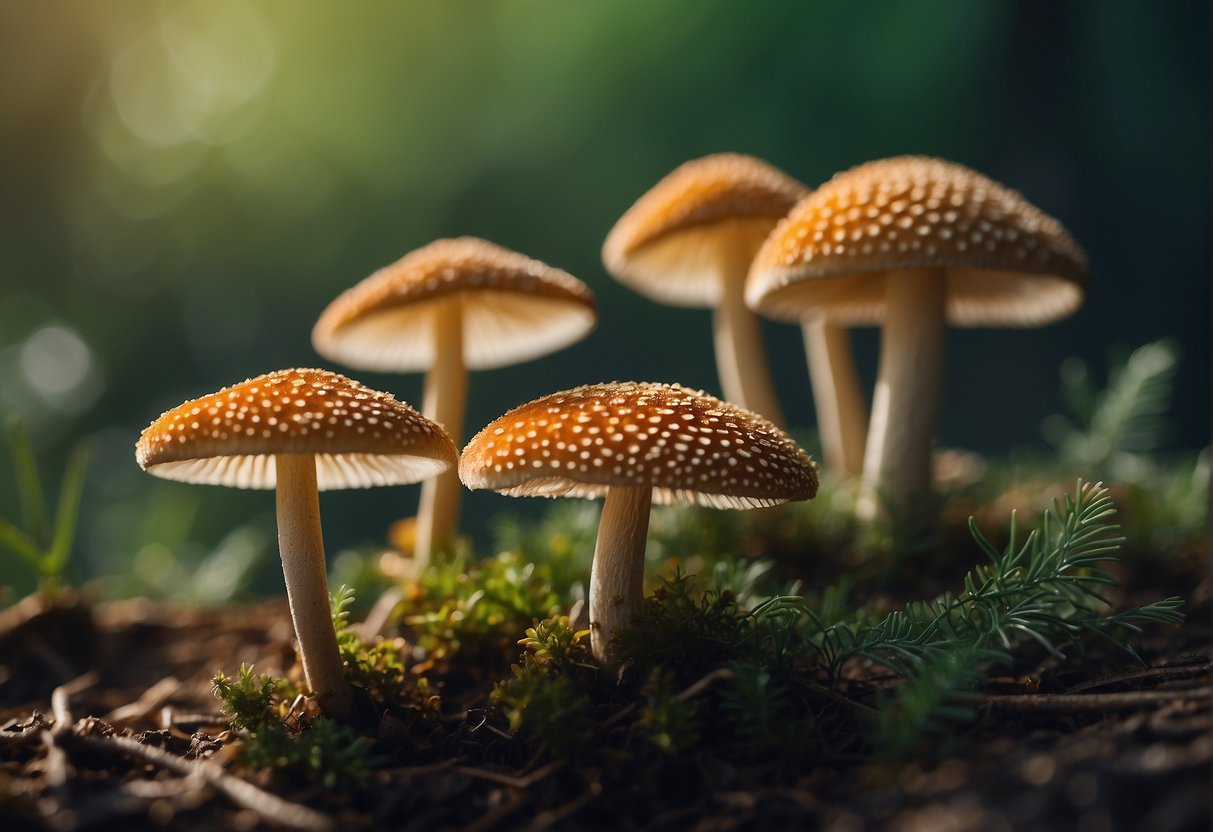
Psychedelic mushrooms, primarily those containing psilocybin, hold a specific legal status under both state and federal law, which you should be aware of if you reside in or visit Kansas.
State Stance on Psilocybin
The state of Kansas has classified psilocybin-containing mushrooms as illegal substances. Psilocybin is listed under Kansas’s own schedules of controlled substances, and possessing, selling, or distributing psychedelic mushrooms can result in legal repercussions.
Kansas Controlled Substances Act
Under the Kansas Controlled Substances Act, particularly Chapter 65, Article 41, Section 5, psilocybin is included in Schedule I. Schedule I substances are considered to have a high potential for abuse, no accepted medical use in treatment, and a lack of accepted safety for use under medical supervision. As a result, any dealings with psilocybin mushrooms are highly regulated and subject to penal action.
Federal Classification
Federally, psilocybin is also classified as a Schedule I controlled substance. This classification means that it’s illegal to manufacture, distribute, or possess psilocybin in the United States. The federal legislation supersedes state law, making psilocybin mushrooms illegal regardless of differing state legislation or reforms that may occur at the state level.
Penalties and Prosecution
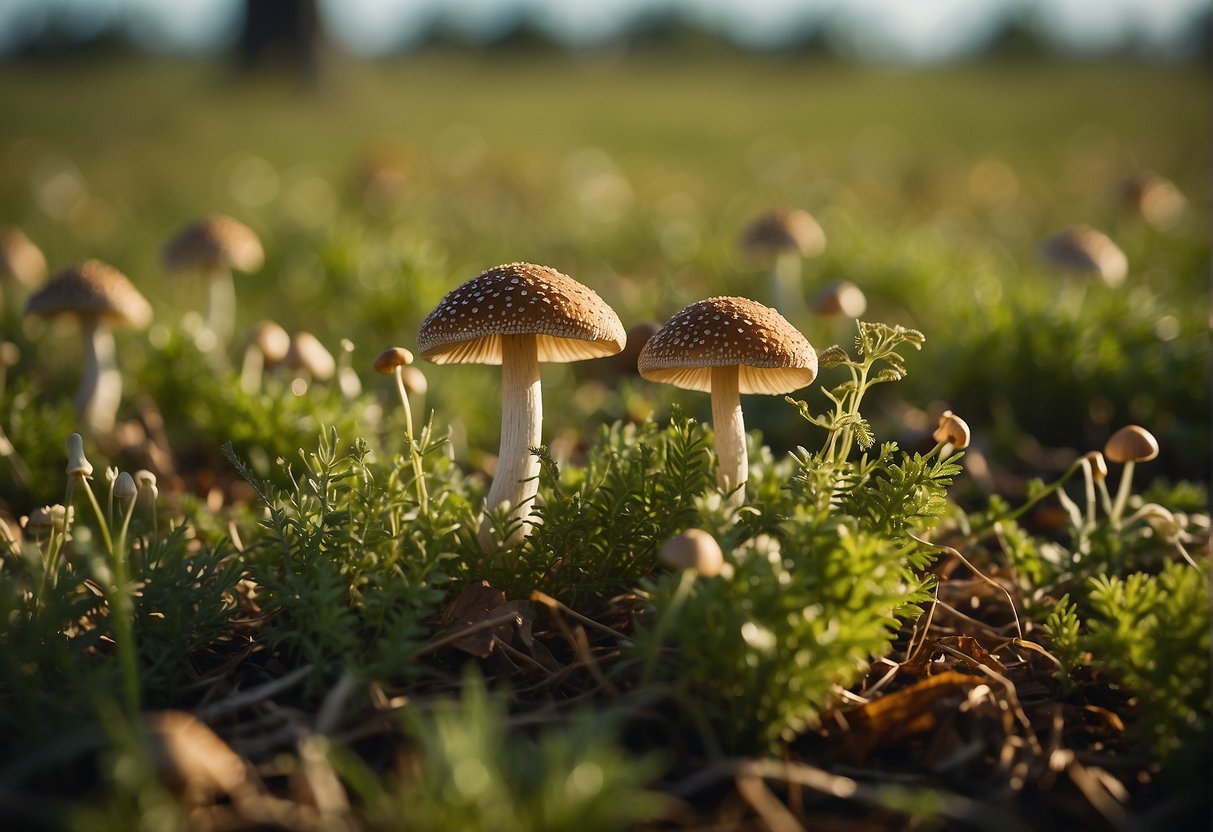
In Kansas, psychedelic mushrooms are classified as a controlled substance, which means that possession can lead to severe legal consequences. It’s important for you to be aware of the specific penalties and implications of possessing these substances.
Criminal Penalties for Possession
If you’re caught with psychedelic mushrooms in Kansas, you face the risk of criminal prosecution. The severity of the criminal penalties depends on the amount you possess. Small quantities might be considered for personal use, potentially resulting in misdemeanor charges. However, larger amounts can indicate intent to distribute, which can elevate the charges to a felony level.
Possession Charges and Fines
For possession of a controlled substance like psychedelic mushrooms, fines can vary. A first-time misdemeanor possession charge may come with a fine, while repeat offenses can escalate costs significantly. Remember, both the fines and the potential jail time increase with the seriousness of the charge, from simple possession to possession with intent to sell.
Criminal Records and Drug Possession
Being convicted for possession of psychedelic mushrooms can leave you with a criminal record, which can affect various aspects of your life, including job opportunities and personal relationships. Even a misdemeanor conviction for drug possession can have long-lasting repercussions, so it’s crucial to understand the legal stakes involved.
Decriminalization Efforts
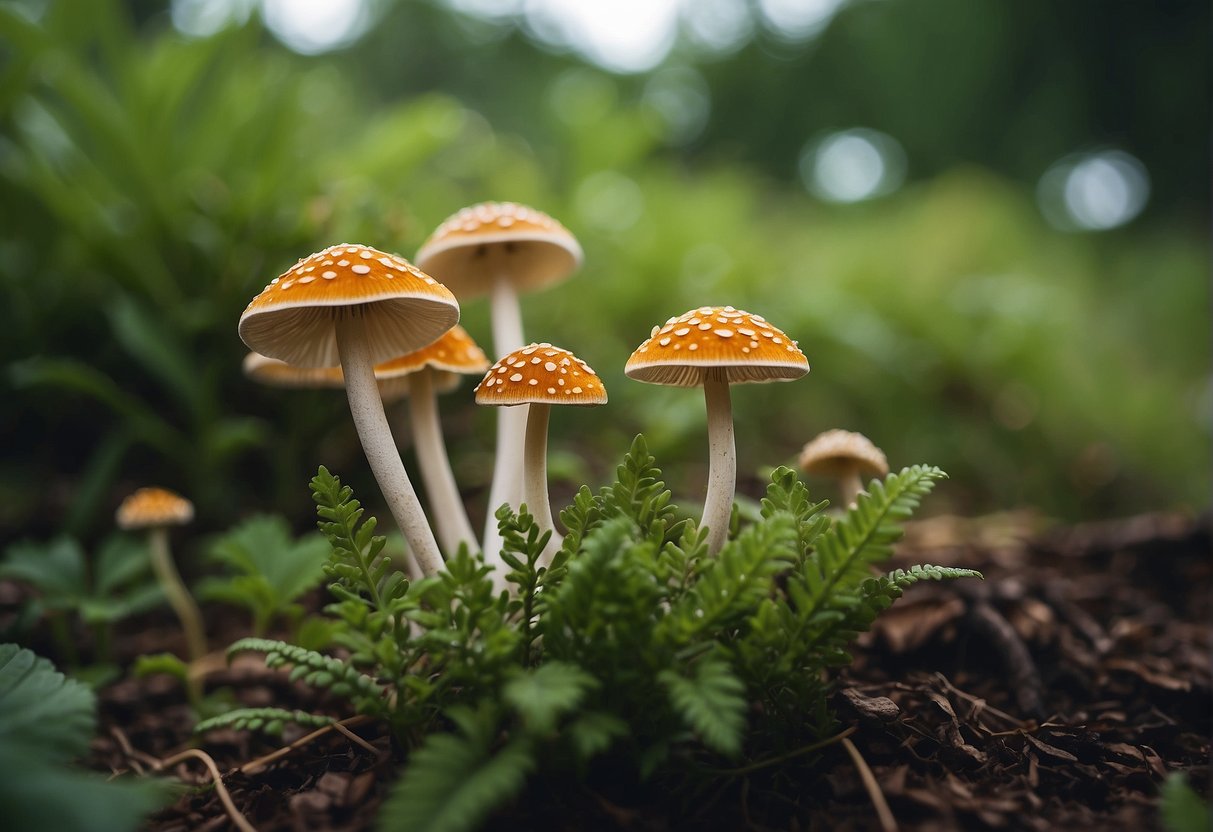
In Kansas, the wave of interest in decriminalizing psychedelic substances, including mushrooms, is gaining momentum. Here, you’ll explore the advocacy efforts, shifts in public perception, and the distinctions between decriminalization and legalization.
Advocacy and Ballot Initiatives
Your awareness of advocacy groups is essential, as they are pivotal in propelling decriminalization forward. These organizations frequently work toward placing ballot initiatives, which allow voters to directly influence the legal status of psychedelic mushrooms. Recent updates in legislation in other states have emboldened local efforts, setting precedents that Kansas activists seek to follow.
Shifts in Public Perception
The public pressure mounting against the long-standing war on drugs appears to be effecting a shift in perception. As knowledge disseminates through communities, the view of psychedelic mushrooms as therapeutic rather than criminal is gaining traction. This evolving mindset is gradually reflected in legislative changes across the nation, an update that could resonate with laws in Kansas.
Decriminalization vs. Legalization
Understanding the difference between decriminalization and legalization is key to comprehending the legal landscape. To decriminalize means to remove criminal sanctions, reducing penalties often to a civil infraction for possession of small, personal-use amounts. Contrary to this, legalization would permit the sale and use of psychedelic mushrooms under regulated systems, similar to those currently established for cannabis in some states. Latest legislation changes typically start with decriminalizing, as seen in several American cities, potentially paving the way for future legalization efforts.
Medical and Therapeutic Use
With an emergence of studies and growing interest, it’s important for you to understand the evolving landscape of psilocybin’s role in treatment and therapy.
Psilocybin as Medicine
Research indicates psilocybin, the psychoactive component in psychedelic mushrooms, has shown potential in treating various mental health disorders. In particular, your struggles with depression, anxiety, and specific conditions like existential anxiety might benefit from this compound.
Research on Psychedelics for Mental Health
Several academic studies have assessed psilocybin’s effectiveness in mental health treatment. They’ve demonstrated encouraging results particularly for depression and anxiety. Psilocybin therapy might also be pertinent if you’re dealing with addiction or PTSD, providing a therapeutic benefit that complements traditional treatments.
Legal Use of Psychedelics in Therapy
In the United States, psilocybin remains largely illegal; however, scientific and medical uses are being evaluated and legally sanctioned in controlled settings. If you’re a resident of a jurisdiction where therapeutic use is permitted under strict regulations, you might access psilocybin for its medicinal properties within a legal framework.
Related Substances and Comparisons
Understanding the legal status of psychedelic mushrooms in Kansas invites comparisons to other psychedelics and the legality of comparable substances. Kansas law and federal regulations set distinct legal parameters for each substance, which can offer insight into the broader landscape of hallucinogenic drug regulation.
Other Psychedelics
- LSD: Also known as acid, you’ll find that LSD is a Schedule I substance under Kansas law, meaning it’s illegal to manufacture, distribute, or possess.
- DMT: This powerful psychedelic compound is found in ayahuasca, a brew used traditionally in spiritual ceremonies. DMT is also illegal in Kansas, like LSD.
- Mescaline/Peyote: While mescaline, the active compound found in peyote cacti, is illegal, certain religious exceptions exist for the Native American Church’s use of peyote.
Legality of Comparable Substances
- MDMA/Ecstasy: Kansas law considers MDMA, often referred to as Ecstasy, to be a Schedule I drug.
- Ketamine: Although ketamine has medical uses, it’s a Schedule III drug in Kansas, indicating potential for abuse.
- Marijuana: Marijuana remains illegal for recreational use in Kansas and is a Schedule I substance, with limited medical usage being explored.
Note on Spores: Psilocybin mushroom spores do not contain psychoactive substances and thus may fall into a legal gray area; however, the cultivation of these spores into mushrooms is illegal.
| Substance | Legal Status in Kansas |
|---|---|
| LSD | Illegal (Schedule I) |
| DMT | Illegal (Schedule I) |
| Mescaline | Illegal (Schedule I) |
| MDMA | Illegal (Schedule I) |
| Ketamine | Controlled (Schedule III) |
| Marijuana | Illegal (Schedule I) |
The legal landscape concerning hallucinogenic drugs often reflects societal attitudes towards risk, potential for abuse, and therapeutic value. While trends in other states show increases in decriminalization and medicinal research, Kansas maintains stringent prohibitions similar to controlled substances like amphetamine, cocaine, heroin, fentanyl, and methamphetamine. Always stay informed of local laws as they are subject to change.
Cultivation and Local Implications
Given the complexities of state and federal laws, understanding the legality of cultivating psychedelic mushrooms in Kansas and its implications for local communities is crucial.
Growing Psilocybin Mushrooms
In Kansas, the active cultivation and possession of psilocybin-containing mushrooms are illegal. If you’re considering the cultivation of these substances, it’s important to recognize that this activity is prohibited by state law, as Kansas legislature has not followed the steps of other states that have decriminalized or allowed the use of psilocybin mushrooms for therapeutic purposes. This means that actively growing these mushrooms can lead to significant legal consequences.
Spores and Legal Ambiguity
However, when it comes to the sale or possession of psilocybin spores, Kansas falls into a legal gray area. Spores themselves do not contain psilocybin and are therefore not regulated under the Controlled Substances Act. This means you may find mushroom spores for sale, which are often marketed for educational or research purposes. But it’s vital to understand that germinating these spores to produce mushrooms containing psilocybin would be considered illegal.
Impact on Local Communities
The legal stance on psilocybin mushrooms could have various impacts on Kansas communities. On one hand, strict enforcement can lead to reduced illicit use, aligning with community safety goals. On the other hand, emerging research suggests potential therapeutic benefits of psilocybin, meaning that current laws might limit access to these potential mental health therapies. This complex situation puts residents in a position where they must carefully navigate the intricacies of the law, balancing personal interest in the substance with adherence to local regulations.
State vs. Federal Legislation
In considering the legality of psychedelic mushrooms, you must understand the dichotomy between state and federal laws, particularly as they relate to controlled substances.
Interplay of State and Federal Laws
Psychedelic mushrooms contain psilocybin, a Schedule I controlled substance under federal law. This classification means that at the federal level, psilocybin mushrooms are illegal, and their manufacture, distribution, or possession is subject to prosecution. However, states like Colorado, Oregon, and cities like Denver have taken steps towards decriminalizing or legalizing the use of psychedelic mushrooms. For instance, Oregon has passed legislation to allow supervised therapeutic use. But remember, state decriminalization does not equate to federal legalization. Even in states that have shifted their stance, actions with these substances could still violate federal law.
Future of State Legislation Regarding Psychedelics
The future of psychedelic mushroom legislation is dynamic. States such as California and Missouri are seeing movements and propositions aimed at legalizing or at least decriminalizing psilocybin. On the other hand, states like Georgia, Idaho, and New Hampshire maintain stringent laws against psychedelics aligning with federal statutes. As each state’s statute evolves, you may find a patchwork of regulations across the country. While no sweeping federal legal status change is imminent, your understanding of each state’s legal landscape is crucial, particularly if involved in the use or advocacy of psychedelic substances. Keep an eye on legislative trends for indications of how the country’s legal framework might continue to shift.
Global Perspective on Psychedelics
In exploring the legality of psychedelic mushrooms, it’s pertinent to place U.S. regulations within a wider global context, highlighting the variances in international categorization and legislation.
International Categorization and Laws
Globally, psychedelic substances such as psilocybin mushrooms fall under varying legal frameworks. Internationally, the United Nations classifies many psychedelics as Schedule I drugs under the Convention on Psychotropic Substances of 1971. This categorization implies that signatory countries consider these substances to have a high potential for abuse, no therapeutic value, and are illegal for all but scientific and medical use.
- The Netherlands, famously liberal in its drug policy, tolerates the sale of “magic truffles” (which contain the same active ingredients as psychedelic mushrooms) and allows for their regulated use.
- Jamaica and Brazil do not prohibit the possession, cultivation, or consumption of psilocybin mushrooms; they are effectively legal in these regions.
- Canada has recently moved towards a more permissive approach, granting exemptions for psilocybin use in end-of-life therapy.
Comparative Analysis of U.S. and Global Legislation
When you contrast U.S. laws with global legislation, distinct differences emerge:
- Within the U.S., states like Oregon have taken steps to legalize the therapeutic use of psilocybin, yet federally, it remains a Schedule I substance.
- Portugal decriminalized the possession of all drugs in small amounts in 2001, aiming to treat drug use as a public health issue rather than a criminal one.
By comparing the U.S. perspective to the diverse approaches of other countries, you can appreciate that drug policy is as much a reflection of cultural attitudes as it is of scientific and medical assessments of harm and benefit.
Recent Developments and Future Outlook
In Kansas, the status of psychedelic mushrooms has seen shifts and is poised for potential changes as attitudes toward psychedelics evolve nationwide.
Latest Legal Changes
Psychedelic mushrooms, which contain psilocybin, are currently classified under Schedule I substances in Kansas, indicating they have a high potential for abuse and no accepted medical use. However, recent reforms in states such as Oregon and Colorado have sparked a wave of interest in reevaluating the legal status of these substances across the country. Despite this trend, as of the latest legislation, Kansas has not enacted any changes, and psilocybin mushrooms remain illegal for both medical and recreational use.
Predictions for Future Legality
Looking ahead, the pathway for legal status of psychedelics in Kansas remains uncertain. Observing shifts in other states, predictions suggest that research into the therapeutic benefits of psychedelics could influence legislation changes. Unless new updates are put forward by lawmakers and supported by the public, the future of legal psilocybin in Kansas remains speculative. The legalization movement could gain momentum if more robust evidence emerges, solidifying the therapeutic value of psilocybin mushrooms.
Frequently Asked Questions
In this section, you’ll find specific information on the legality of psilocybin mushrooms in Kansas, including current legal standings, consequences for possession or use, and any movements towards legal change or decriminalization.
What is the current legal status of psilocybin mushrooms in Kansas?
Psilocybin mushrooms are classified as Schedule I controlled substances in Kansas. This categorization means they are considered to have a high potential for abuse and are not recognized for medical use, making their possession, sale, or use illegal in the state.
Can individuals possess or grow psilocybin mushrooms for personal use in Kansas without facing legal consequences?
No, individuals cannot possess or grow psilocybin mushrooms for personal use without facing legal consequences. Engaging in these activities is illegal and can lead to arrest and prosecution under Kansas law.
Are there any medical or therapeutic exemptions for the use of psychedelic mushrooms in Kansas?
Kansas currently does not offer any medical or therapeutic exemptions for the use of psychedelic mushrooms. The state’s laws maintain that psilocybin remains illegal regardless of the intended use.
Has there been recent legislation attempting to change the legal status of psilocybin in Kansas?
As of the last update, there have been no successful legislative efforts to change the legal status of psilocybin mushrooms in Kansas. Proposals and discussions may arise, but no changes have been officially enacted.
What are the penalties for the possession, sale, or distribution of psilocybin mushrooms in Kansas?
Penalties for the possession, sale, or distribution of psilocybin mushrooms in Kansas are severe, with potential consequences including substantial fines and imprisonment. The exact penalty depends on the quantity of the substance involved and the nature of the offense.
Does Kansas recognize the decriminalization or legalization movements for psychedelic substances from other states?
Kansas does not recognize the decriminalization or legalization of psychedelic substances from other states. Kansas law enforcement continues to enforce state drug laws, which consider psilocybin mushrooms to be illegal substances.

